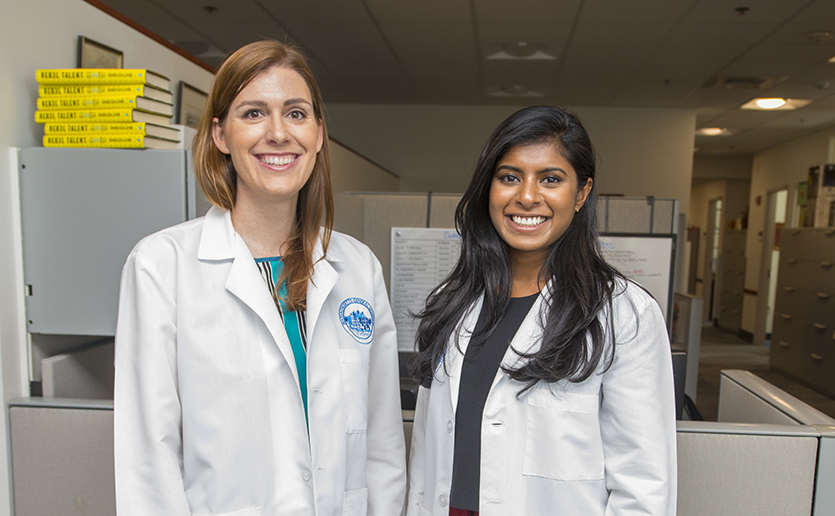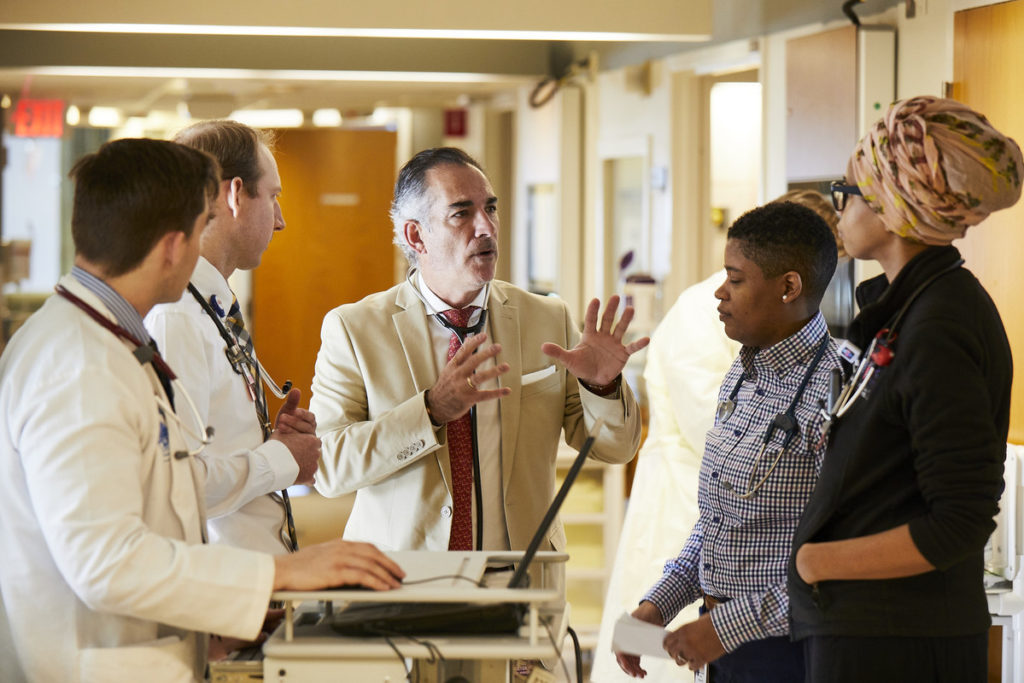Less than one percent of cardiovascular surgeons are women. But at Massachusetts General Hospital, Thor Sundt, MD, is working hard to change that.
“There are few women role models, but Dr. Sundt has been an important advocate and mentor.”
“It’s so important for our patients to have access to a more diverse surgical team,” says Dr. Sundt, the chief of Cardiac Surgery at the Corrigan Minehan Heart Center at Massachusetts General Hospital. “I am eager to encourage a broad group of candidates to pursue this field.”
Training for a career in cardiac surgery is arduous, with an additional seven years of preparation after residency before a physician can enter an independent practice. Thanks to the support of philanthropy, two new fellowships are encouraging women to consider this career track by covering the cost of their master’s degree in public health at the Harvard T.H. Chan School of Public Health.
Andrea Axtell, MD, will complete her second year as the Cardiac Surgery Outcomes Fellow, a position made possible by the Corrigan Minehan Cardiovascular Trainee Award, and Philicia Moonsamy, MD, is near the end of her first year as the inaugural Teresa G. and Ferdinand F. Martignetti Endowed Resident Research Fellow in Cardiac Surgery.

Few Female Role Models
“You have to decide fairly early in your training if you want to go on for this level of expertise,” Dr. Moonsamy says. “There are few women role models, but Dr. Sundt has been an important advocate and mentor. His willingness to collaborate with fellows on clinical research allows me to apply the statistical analysis and other skills learned in the classroom to the challenges our patients experience every day.”
After completing her two-year fellowship, Dr. Moonsamy will continue with five more years of training for her career in thoracic surgery.
“I pursued a career as a surgeon because I enjoy the excitement and elegance that goes into patient care,” she says. “Every patient brings an intellectual challenge, requiring a balance of so many skills – from the delicate art of sewing tiny blood vessels, to more global skills like leading a team in the operating room.”
Surgery Requires Personalized Approach
Dr. Axtell, who begins her training in cardiothoracic surgery in July, recently collaborated with Dr. Sundt on a unique project to investigate how the duration of cardiopulmonary bypass influenced the risk of acute renal failure after cardiac surgery.
Fellowships like these, say both doctors, open career possibilities previously thought unavailable to women.
“What I loved about this project was that the idea came from a single patient encounter,” says Dr. Axtell. “I designed a study, examined the available data and built a risk prediction model Dr. Sundt was able to use to provide his patient with options to help inform the decision around his care.”
In cardiac surgery, says Dr. Moonsamy, there is often more than one effective intervention for a single problem and a procedure must be selected based on patients’ goals for their quality of life. “Because of leaders like Dr. Sundt,” she says, “we have started to pay more attention to involving patients in decision making, so that we are not merely just repairing an organ but looking at the whole patient and their goals for their quality of life.”
Fellowships like these, say both doctors, open career possibilities previously thought unavailable to women.
“I am honored to be part of a strong network of collegial and supportive female residents who will change the future of cardio-thoracic surgery,” Dr. Axtell says.
To learn more about how you can support efforts to encourage more women to become cardiac surgeons, please contact us.

